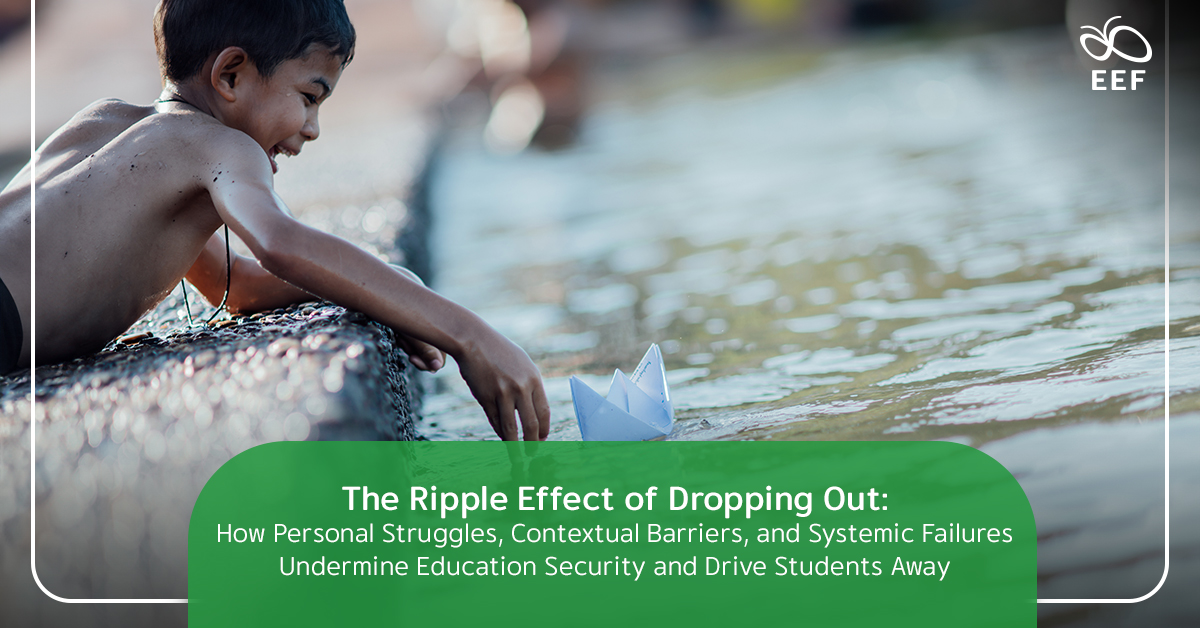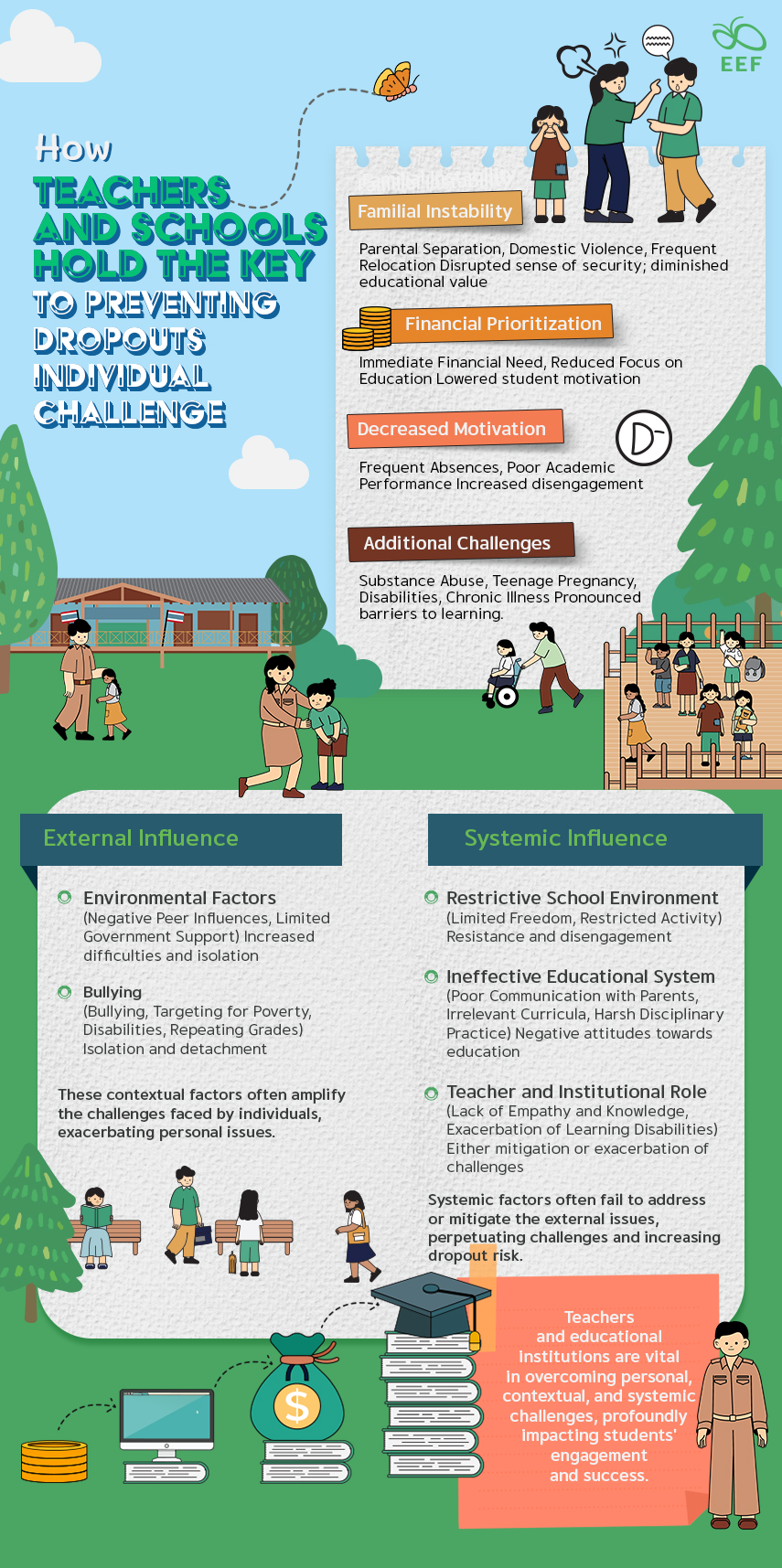
The path to educational equity is fraught with obstacles that often begin in the home. School dropout is rarely an isolated event; it is often the result of a chain reaction, starting with familial instability — be it parental separation, domestic violence, or frequent relocations — that disrupts a child’s sense of security. As parents prioritize survival over education, student motivation declines, leading to frequent absences and poor academic performance. This situation is aggravated by restrictive school environments that stifle freedom and engagement, particularly for students facing additional challenges like substance abuse, teenage pregnancy, disabilities, or chronic illness. Environmental factors like negative peer influences and limited access to government support further deepen the disconnect from school, while bullying, particularly targeting those stigmatized for poverty, disabilities, or repeating grades, deepens isolation and detachment from school. This detachment is exacerbated by an educational system ill-equipped to address these complexities, where ineffective communication with parents, irrelevant curricula, and harsh disciplinary practices breed negative attitudes toward learning. In the end, the presence — or absence — of knowledgeable and empathetic teachers either alleviates or worsens learning difficulties, ultimately determining whether students remain engaged or withdraw from their education altogether.
How Teachers and Schools Hold the Key to Preventing Dropouts

The Equitable Education Fund (EEF) Thailand is advancing educational equity through its Education Security System, focusing on economically disadvantaged groups. Addressing these disparities, the system confronts the pressing issue of reintegrating nearly 394,000 dropouts, while also enhancing teacher quality and fostering collaborative policies. Financial barriers also hinder access to higher education, with rising costs limiting opportunities despite scholarships. In response, EEF’s High Vocational Innovation Scholarship addresses skill shortages, linking education with employment through enhanced vocational training. Amidst these efforts, supportive schools and teachers play a vital role in mitigating dropout risks and maintaining student engagement and success, and EEF’s policy recommendations chart a dynamic roadmap for a more inclusive and equitable educational system, ensuring a future where every student’s right to education is realized through equitable and innovative solutions.

